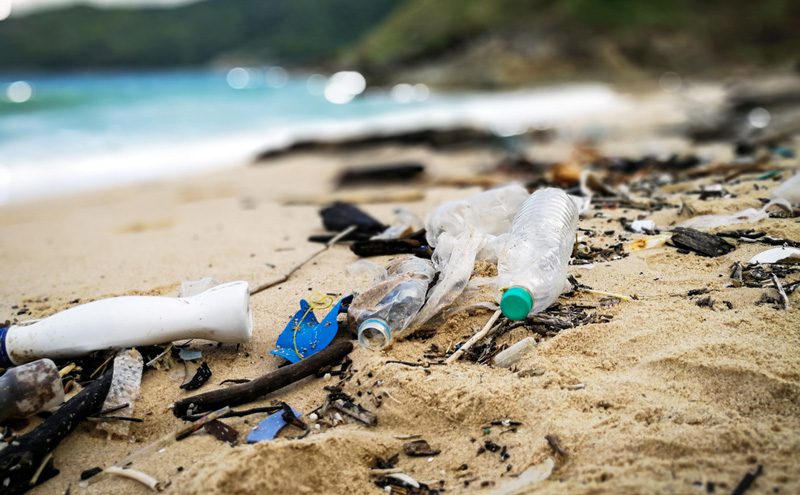
Plastic marine litter from the UK could be reduced by nearly two thirds with five simple actions, according to a new analysis by think tank Green Alliance. One, a deposit return scheme for beverage containers, would stop a third of the plastic going into the oceans.
In a speech to WWF on 21 July, Environment Secretary Michael Gove promised to tackle marine plastic litter as part of a renewed waste and resources strategy. Mr Gove’s announcement that microbeads will be banned from rinse-off products later this year is a step forward, says the group, but it will tackle less than 1% of the problem. The government’s plastic bag charge also seemingly addresses only 1% of the plastic that enters the sea.
Other well-publicised methods, which use buoys to remove litter from the open oceans, only tackle floating debris and so could only remove 2% of the plastic that gets into the sea. This is because most plastic sinks below the ocean surface or is ingested by animals.
Green Alliance says its analysis shows that the single most effective action would be to stop plastic bottles getting into the sea through a deposit return scheme. The largest proportion (33%) of plastic litter comes from plastic bottles, and this problem is likely to escalate as global bottle production is forecast to jump 20 per cent by 2021.
Deposit return schemes are already widely implemented abroad and have been very successful (nearly 100% of plastics bottles are returned for recycling in Germany); they also provide access to more high quality plastics for recycling, preventing them from going to landfill, incineration or finding their way into the environment.
Alongside a deposit return scheme, four other actions would reduce the UK’s contribution to plastic pollution in the sea by nearly two thirds in total:
· Enforce Operation Clean Sweep to cut pollution from plastic pellets or ‘nurdles’ used as raw material in industrial processes (9% of plastic pollution);
· Enforce existing maritime waste dumping bans, using techniques similar to those used by Norway to enforce its fish discards ban (11% of plastic pollution);
· Upgrade wastewater treatment plants with sand filters to retain the microplastic fibres shed from synthetic clothes when they are washed (9% of plastic pollution); and
· Expand the UK’s ban on microbeads to all products, not just rinse-off products (1% of plastic pollution).
Dustin Benton, acting policy director for Green Alliance said:
“It’s depressing to visit a beach that is covered with plastic, and downright scary to learn that the seafood you are eating might be contaminated by plastic pollution. The popularity of the microbeads ban and plastic bag charge shows the public is up for tackling these problems. The government should listen, introduce a bottle deposit scheme, and enforce rules on sources of industrial waste. These simple steps would address two thirds of the UK’s marine plastic problem.”






